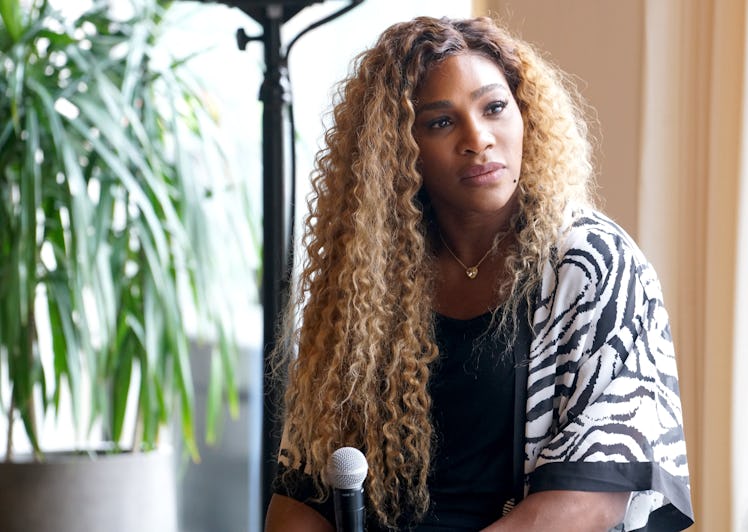
College Students Can Face Financial Abuse, Too, Says Serena Williams
You might know that one in four women will experience domestic violence at some point in their lifetime. But did you know that 99% of domestic violence survivors experience financial abuse, too? This pattern of abusive behavior is used to manipulate and intimidate a significant other by controlling their financial resources, and it's not just a problem that occurs in marriages. College students can face financial abuse, too, even if your relationship is pretty new or casual.
It's really important to just set boundaries, like, 'I'm willing to help, I'm willing to do this, but these are my boundaries.'
Tennis champion Serena Williams, a program ambassador for Allstate Foundation Purple Purse whose passion for raising awareness about this issue was sparked when a friend of hers experienced an abusive relationship, says that one of the keys to creating a financially healthy relationship is to talk openly with your dates or your significant other about what you're comfortable with when it comes to money. "It's really important to just set boundaries, like, 'I'm willing to help, I'm willing to do this, but these are my boundaries,'" she tells Elite Daily.
Setting boundaries could look like insisting you split the pizzas and beers on your first date, or ensuring that you order your own meal rather than letting your date order for you. You might want to be clear about how much money you're willing to lend in a pinch (and then, later on, firmly stick to that limit). If you ultimately decide to move in together, it's crucial to set boundaries about how much you're willing to spend on rent, utilities, and living expenses. Talking about money might not be the most comfortable activity in the world, but it gets easier with practice — and it's important for you and your partner to be on the same page.
Once you've had the money talk, stick to the boundaries you set. "[Couples can sometimes] have conversations around potentially sharing finances that don't always come to fruition," notes Ellen Lisak, Allstate Foundation senior program officer. Purple Purse, a program of The Allstate Foundation, provides online resources and education about financial abuse, including a Healthy Relationship Curriculum for college students. "We always recommend to have really specific conversations about exactly what those dynamics are going to look like," Lisak says.
If something feels off to you, you should take that seriously.
As your relationship grows more serious, you might naturally wind up sharing prized possessions like your Netflix password, your phone charger, or your softest sweatshirt. But according to Purple Purse, there are a few things you should think carefully about sharing with your significant other, including your Social Security number, your debit card PIN, your bank account password, and access to your checkbook. No matter how much you trust your partner, it's safest to keep those important deets to yourself.
Another warning sign to watch out for is if your significant other tries to sabotage your education or career. It's never OK for a partner to encourage you to skip class or work or to prevent you from applying for internships or jobs. In a healthy relationship, your bae will always have your back when it comes to pursuing your goals.
Williams stars in The Allstate Foundation's new “No Financial Abuse. No Domestic Violence” campaign, which launched in August. The campaign aims to to illuminate the signs of domestic violence and financial abuse. Joining the campaign are two survivors are financial abuse, Susan and Terera, whose stories will be shared in new Purple Purse videos launching Sept. 26.
Lisak stresses that trusting your gut instinct is a powerful tool to keep you safe. "If something feels off to you, you should take that seriously," she says. "That's a red flag."
If you or someone you know is experiencing domestic abuse, call 911 or the National Domestic Violence Hotline at 1(800) 799-SAFE (7233) or visit thehotline.org.